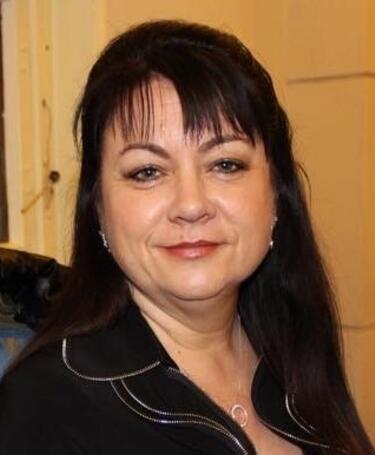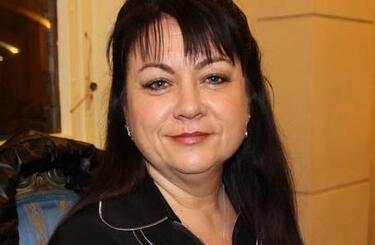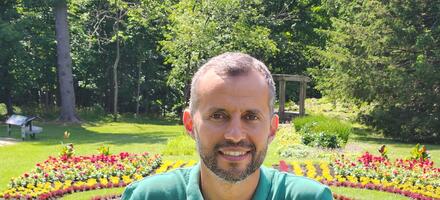
A quality choice
Progress indicator

Abigail Cooper CQP FCQI made quality a choice and worked hard to enter the profession, eventually becoming a CQI Fellow. Learn more about her journey.
What was your journey into quality and your current role?
I am one of those rare people who chose quality as a career, although that doesn’t mean to say that the journey was smooth.
I was working in local government and they offered to fund a degree course for me, so I chose a Master’s in the management of quality excellence at Leicester University. While doing that, I found out that it was a sponsored course by Rolls-Royce, so I decided that was the company I wanted to work for. However, as I don’t have an engineering background, I had to demonstrate that I would still be an ideal candidate. It took me 18 months, and I went into the organisation on my second career, which was project management. I then moved into quality and haven’t left the profession since.
It wasn’t an easy route because I had to demonstrate that just because I didn’t have the background in an engineering company, I could still do what I said I could do. My MSc course was under the engineering faculty and it was very much around engineering principles even though the underlying piece of the course was organisational behaviour – something I have always been fascinated in.
I spent five years working alongside Deloitte in change management and it was from there that I managed to get into Rolls-Royce. It took me five years to get into a private industry using quality so it wasn’t an easy route. I worked for two years in the submarines business, in project and change management, and then moved over into civil aerospace quality and improvement. The guy who hired me had an engineering PhD and was a Master black belt in Lean Six Sigma and he hired me because I didn’t have a technical background. I asked him why he didn’t want an engineer like everyone else does and he said "because I know how they think and I need someone who thinks differently – that’s you".
When and why did you decide to join the CQI?
I joined during the period when I was working in civil aerospace. I’ve always believed that if you are in a profession, you should get yourself professionally recognised. I’m a perfectionist; I always want to do the best I can in any given field so I applied for the CQI and got my Chartered membership. I started working for Otis Elevator Co., a company that designs and manufactures elevators, escalators, moving walkways, and related equipment, four years ago, so I was working there when I achieved Fellowship.
What prompted you to regrade to Fellow?
Suzanne Hill CQP FCQI asked me if I had thought about it, and I said no, as I thought that to be a Fellow, you had to have been a member for years and I didn’t think I had enough validating experience. Maybe my judgement was clouded because I know Fellows in other organisations who had gone into it for the kudos that you get for being a fellow – and to be paid more – so maybe that put me off. But once I had been convinced that I did have enough experience to fulfil the criteria, I thought "it’s been suggested, I now know what to do and I have the tools to do it, so what’s stopping me?"
Suzanne then put together a cohort of people seeking regrading, and two of us in that cohort went for Fellowship and we both got it. I had also joined the CQI’s mentoring programme and my first mentee was going for regrade to Member from Practitioner, so we went through the process together. He achieved his regrade at the same time as I achieved mine, after about six months.
"I’ve always believed that if you are in a profession, you should get yourself professionally recognised"
How did you find the process?
I absolutely could not have done it without the guidance, support and encouragement from Suzanne. She had gone through the process and she is very practically-minded. She thinks exactly how I do; if it is logical, if it’s practical then you can follow it! Suzanne had developed a kind of matrix, where you put in which of the activities you’ve done and then mark off what competences they fulfil and how many words you’ve used etc. It was a really practical way of tracking what you had done, for example, "I’ve finished this one and it ticks off these things and now I’m doing this one and I’m only halfway through but it ticks off these things".
Both my mentee and I found that so helpful, and we both completed our regrading processes in about six months.
What do you think is the value of becoming a Fellow of the CQI?
I think anyone in our line of work is more aware of the learning journey than most. In a lot of trades, people have to keep their training up to date or they lose their certification. I think quality should be the same. You don’t have to work in a technical sector like engineering to have an interest or desire to keep your CPD up to date, to keep your understanding and learning growing.
I certainly don’t see my Fellowship as the end of my learning. It is nice to have it on my title, and I worked hard to earn it, but it doesn’t mean to say that I know everything. That’s why I like the CQI’s network events, because you always learn something, a different perspective.
Becoming a CQI Fellow
Begin your regrading process today – learn more about what is required.
Free regrade when you renew your 2023 membership
Our regrade offer gives you the opportunity to obtain a higher membership grade with a potential saving of up to £69* on regrade fees.
Quality World

Get the latest news, interviews and features on quality in our industry leading magazine.
Find a CPD course
Develop your quality skills and knowledge with an approved CPD course.


